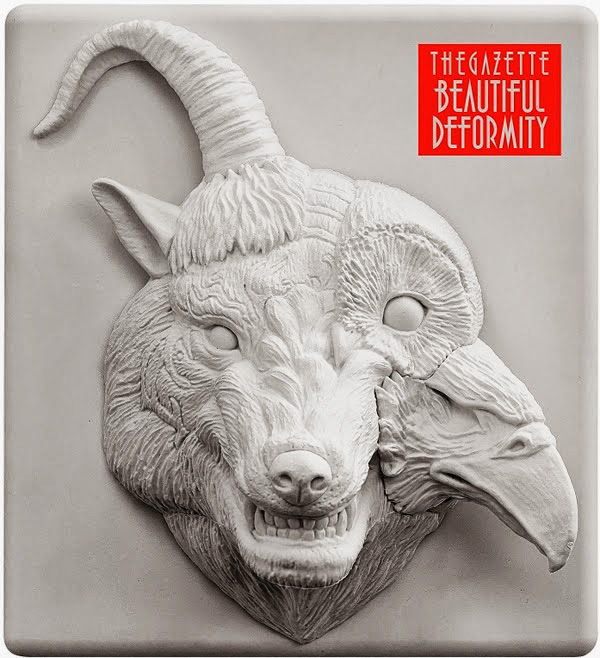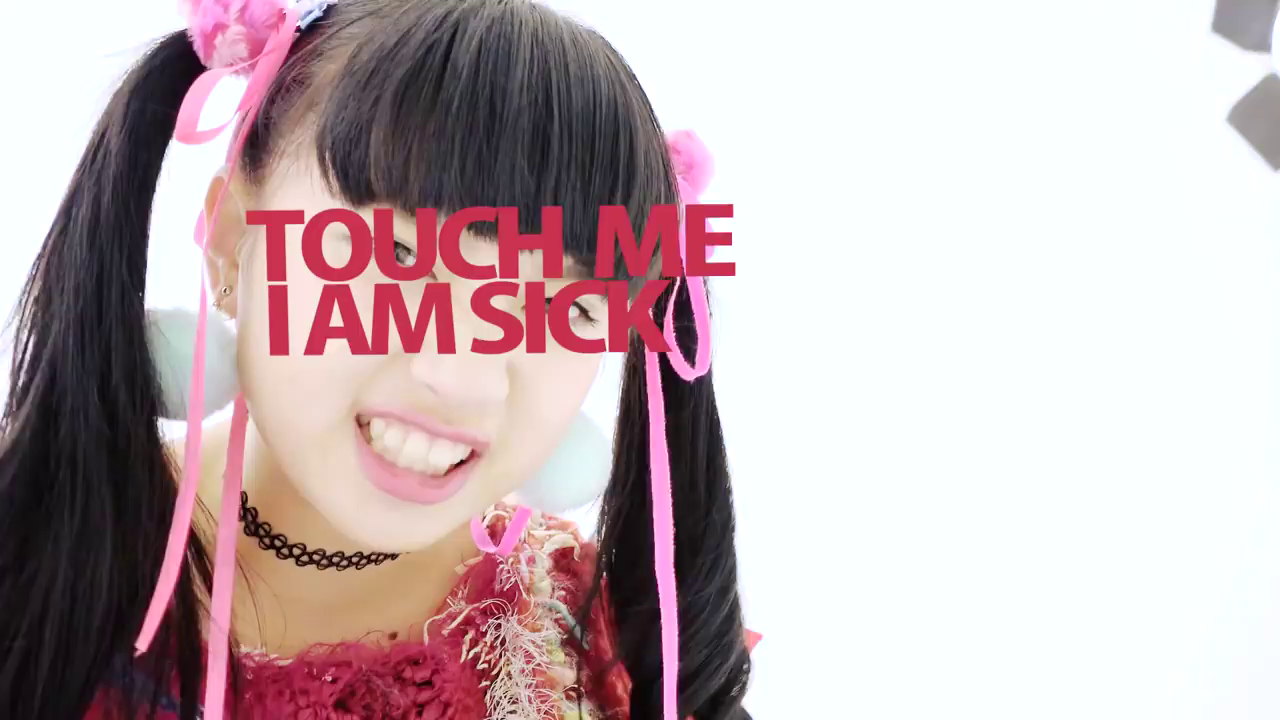URBANGARDE
Interview by David Cirone
July 26, 2018
Japanese “trauma techno-pop” band URBANGARDE has been pushing the envelope for a decade, and they recently marked their 10-year anniversary with a knockout celebration in Tokyo, “KEKKON SHIKI”. With years of experience behind them and increasing support from fans worldwide, their visual concepts and challenging ideas remain as controversial as ever. Vocalists Yoko Hamasaki and Temma Matsunaga map out their plans to transition URBANGARDE into an even higher level of social commentary and personal exploration.
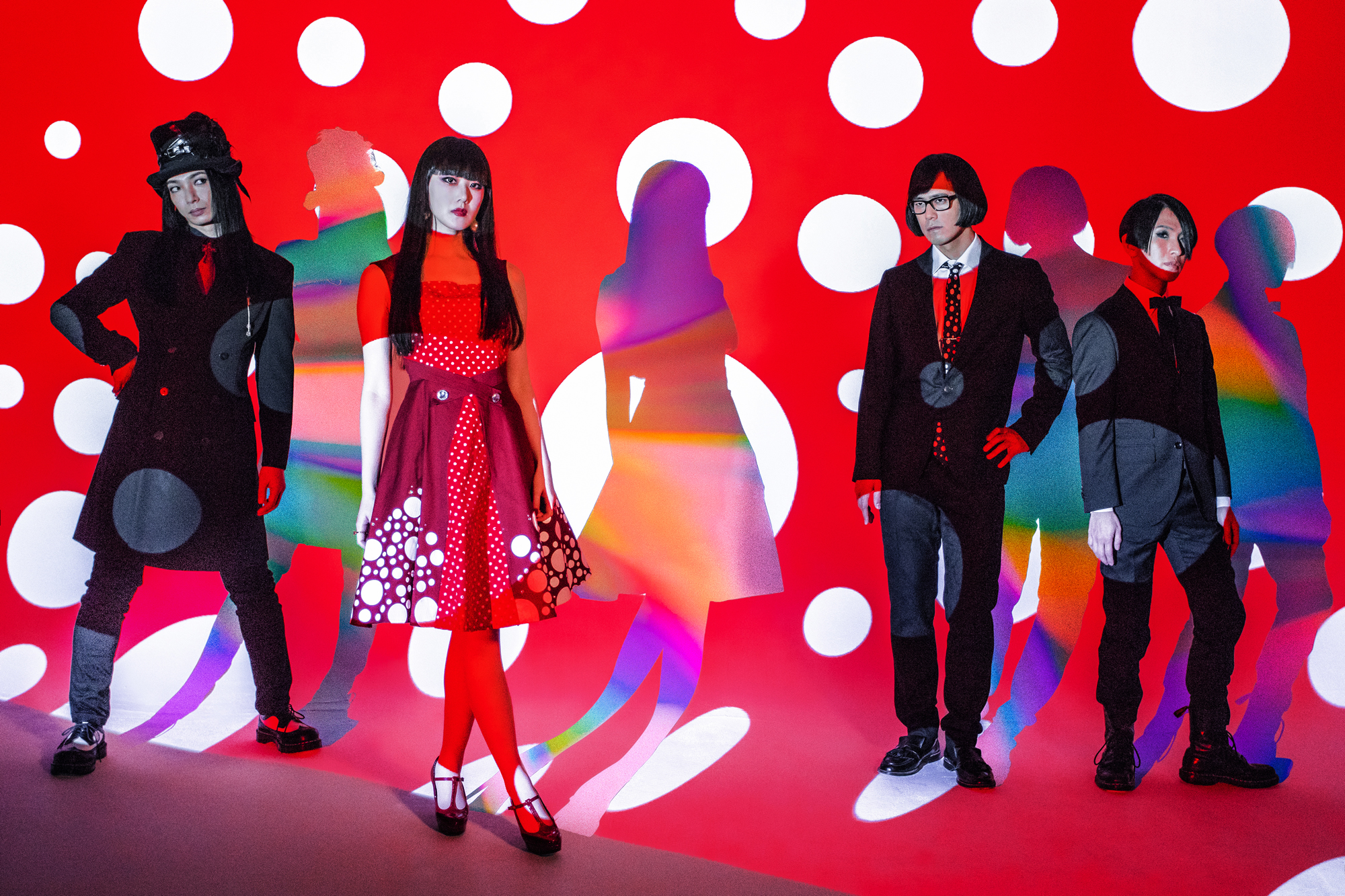
Your 10th Anniversary “KEKKON SHIKI” event was super-theatrical, with lights, costumes, dancers. It was a full-scale production. How much planning was required?
Yoko Hamasaki: We decided the date for “KEKKON SHIKI” about a year ago, and we started laying out the details and song selection three or four months before the concert. But it was on my mind all year long.
Temma Matsunaga: I’d been thinking for a long time about the right direction for this celebration live, and what message we really wanted to deliver. This was a once-in-a-lifetime event for us and for our fans, and the more I thought about the fans, the idea of a wedding theme kept coming back. Even though I’ve never personally experienced getting married, the concept felt like a natural fit, and everything seemed to progress quickly from there.
Were there any extreme ideas that were cut from the final production?
Hamasaki: There was an idea for me to fly over the audience, and I was really excited about it, but we had to cancel that in the final stages. I really want to fly and sing at the same time someday!
Matsunaga: There was an alternate concept, the opposite idea from “KEKKON SHIKI = Wedding,” which would have been the most tragic festival imaginable, but I’m still preserving this idea. It may be a long time from now, but I hope to show it someday.
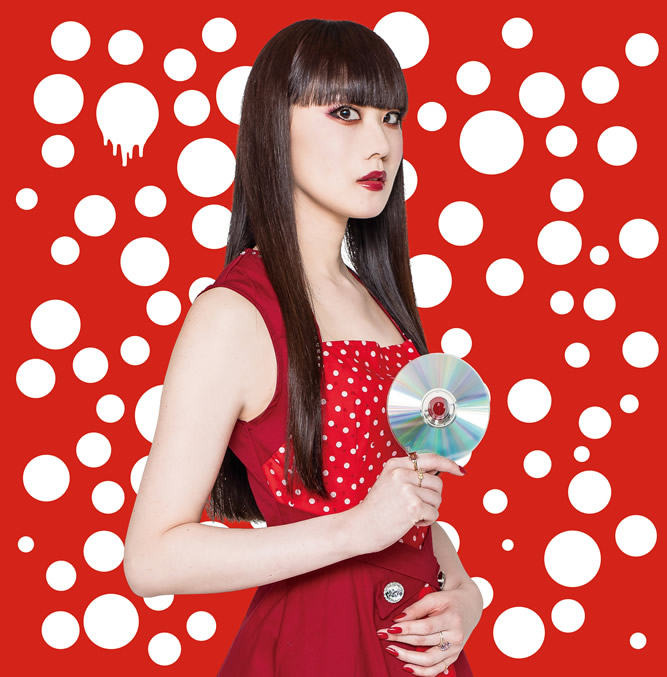
Many of URBANGARDE’s songs talk about the city (“Tokyo Kid”, “Shinjuku Mon Amour”,“Tokai no Alice”). Is city life the source of Japan’s mental sickness?
Hamasaki: I’m not from a “tokai” (“big city”) like Tokyo, so I’ve had a longing for this kind of life more or less since childhood. Even with the longing, there were times of disappointment when I actually moved to Tokyo. I think it was like Paris syndrome. However, whether it’s a big city or not, I feel that emotional, mental problems are hidden everywhere.
Matsunaga: Cities are like machines that mirror humanity’s mental structure, I think. They are opposite from nature, artificial and extremely unnatural. When the human mind is the main topic, it feels natural for cities to be chosen as the setting. Isn’t the relationship between cities and mental disorders like the relationship between the chicken and the egg?
It seems that, as long as society is sick, URBANGARDE will have new topics for songs. Do you ever feel that there are too many topics to choose from?
Hamasaki: I rather think that there are only a few theme choices, and that they’re common for all humanity. Our songs include feelings that everyone has had.
Matsunaga: Humans would not create anything if they lived without agony. They create in order to sublimate — in German, it’s “aufheben” — and identify the cause of their agony. When there are no themes left for URBANGARDE, it would mean that humanity has abandoned art.
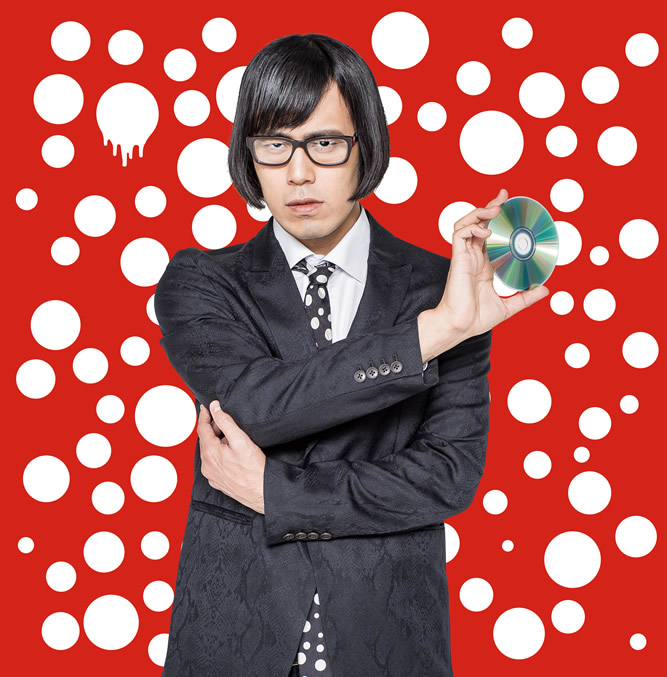
How do you decide what to focus on?
Hamasaki: It changes according to the events of the current moment we’re living in, and it’s also affected by our viewpoint from our current personalities. Time moves forward for everyone, and our focus and passions move forward all the same.
Matsunaga: I follow my intuition. I hold the principle that I am both a god and the lowest slave in the world I live in.
Shoujo Fiction contains a variety of styles. There are soft melodies, intense beats, electro-pop, and hard rock. Compared to your earlier years, do you feel URBANGARDE’s music is becoming more diverse?
Hamasaki: At the beginning, we made a lot of our music by instinct, and our natural impulse was to follow others’ examples. Some of that led us to great music, and some things led us to results that weren’t perfect, but turned out to be fun anyway. The current URBANGARDE has been able to take all the styles we’ve tried in the past and for our unique style of “music”. Rather than continuing to diversify the genres, they’ve all become one, and this album made us take a step forward into establishing URBANGARDE’s sound.
Matsunaga: I can say it’s diverse, and I can also say that we’re able to shift it now that we’ve established our standard. Language changes throughout every era by breaking small rules inside of a larger framework. I think that our music is the same.
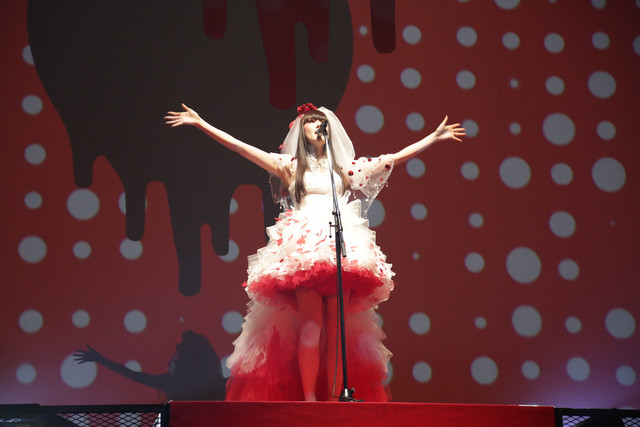
In the “Atashi Fiction” MV, the main visual theme is the reflection of a CD disc. What’s the meaning of this?
Matsunaga: The surface of CD is like a mirror, right? We took this object called a “CD” and positioned it as a mirror that reflects listeners’ heart. Streaming music is modern and shareable, but a CD includes a system that enables listeners to face music alone, and this is why it functions as a mirror. We created the MV with a theme of a memorial to the CD and to music relating to CD, and it includes a message that the music and artists you listen to are both fiction and ghosts.
In the “Akumade Akuma” MV, the message seems to be the acceptance of duality. Do you have two sides to your own personalities?
Hamasaki: There is an angel side to me and an evil side, too, and anyone can have that dichotomy of character, I believe.
Matsunaga: For example, between URBANGARDE’s Temma Matsunaga and the solo artist Temma Matsunaga, the music sense, the way he speaks, and the stance are completely different. But both are still me. Sometimes they cross and other times they’re at odds. They might be combined someday.
Do you think URBANGARDE’s music videos are an essential part of your identity? Would URBANGARDE be the same band without the visual expression?
Hamasaki: Maybe the visual was necessary before, when we were first establishing our identity, but now I’m confident to express URBANGARDE with music alone.
Matsunaga: I always want URBANGARDE to be able to reflect culture and media, so I hope the visuals, package design, and even our statements on SNS will be considered a part of our work. But, at the end, it’s the words and music that will leave the most lasting impression.
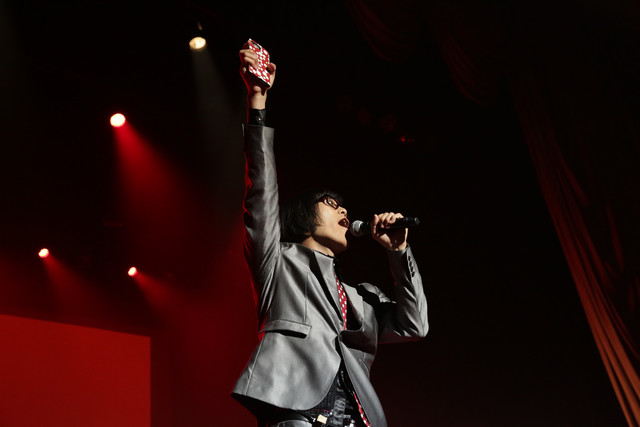
In the “KEKKON SHIKI” event, you asked fans to shift their perspective, to see URBANGARDE as a young girl, 10 years old. What’s the biggest challenge for this young girl as she moves forward in the world?
Hamasaki: Defeating her fear of letting go.
Matsunaga: Her first menstruation.
Temma, your stage persona displays an unrestrained obsession with sex. Where does that come from?
Matsunaga: Rather than thinking about only sex, I act based on the concept of actions leading to preservation of species… which is ultimately sex.
What parts of your persona did you get to show in your solo album last year?
Matsunaga: If the Temma of URBANGARDE is Eros, then solo artist Temma is Thanatos. If the former is Jekyll, the latter is Hyde… Angel and devil. Color and monochrome. Fantasy and documentary. Fiction and non-fiction. The libido that was oppressed with URBANGARDE exploded in the solo album.
You chose to self-title the album Temma Matsunaga — does that mean this album is the “real you”?
Matsunaga: Even though it had been hidden before, it would be more accurate to say that I got to reveal “another” me rather than “true” me. URBANGARDE’s Temma who writes girls fairy tales and Temma who writes the reality of a 35-year-old middle-aged man, these are both me. But they are certainly contradictory. Someday they will probably try to kill each other.
Yoko, we’ve talked before about the difference between the Yoko “character” you play in URBANGARDE vs. “the “real” Yoko revealed in Blue Forest. On Shoujo Fiction, the style of “Kiss ni suite” feels like a combination. Are these two sides growing closer together?
Hamasaki: During the recording of both those projects, I felt that both URBANGARDE’s “Yoko Hamasaki” and solo “Yoko Hamasaki” are different sides of my true self after all. Rather than getting closer, they are the same person, I believe. So if you’re hearing them together in a song, it’s a moment where these sides are in harmony.
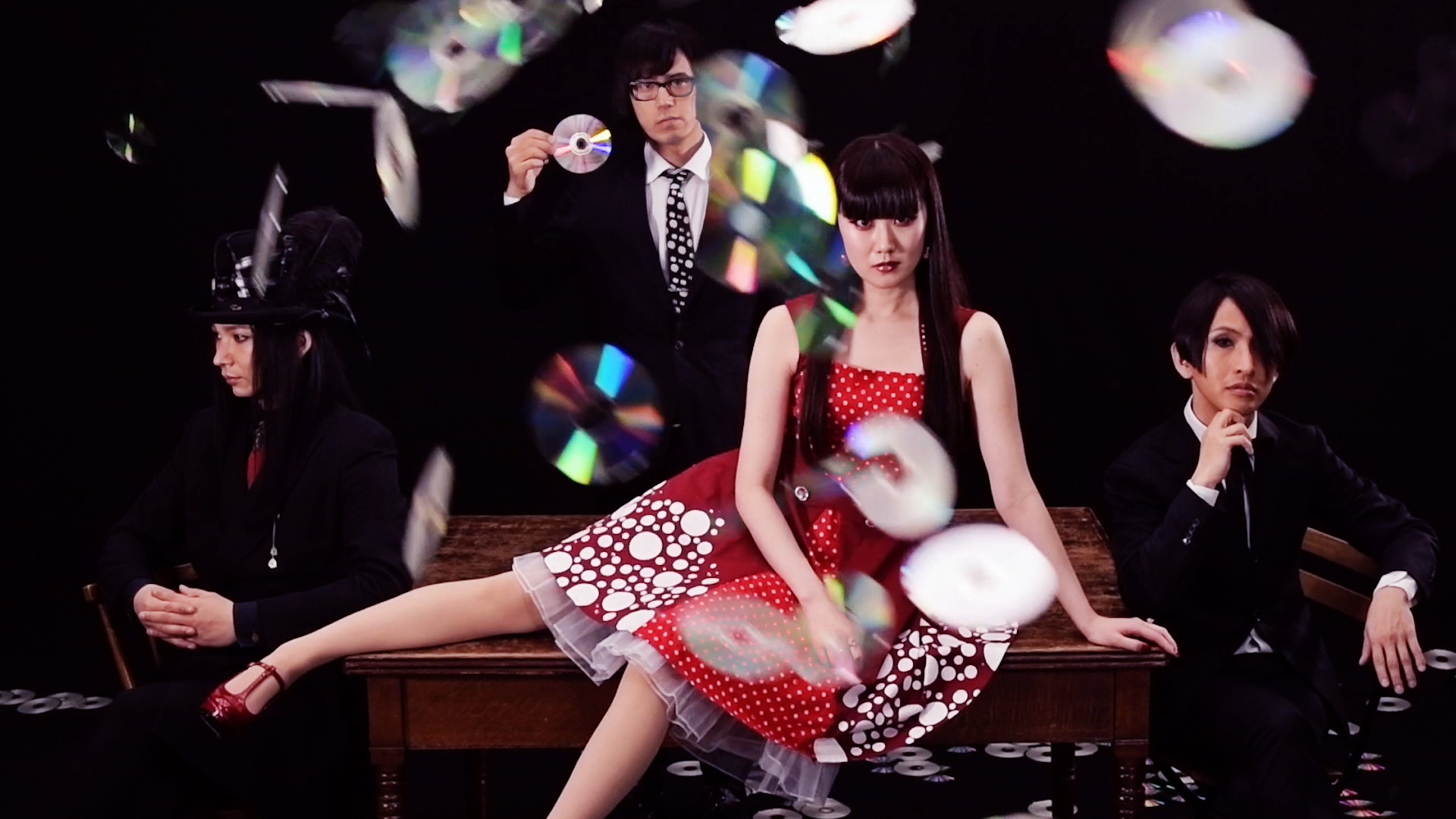
URBANGARDE Website: http://urbangarde.net
URBANGARDE Facebook: https://www.facebook.com/urbangarde
URBANGARDE Twitter: https://twitter.com/urbangarde
URBANGARDE YouTube: https://www.youtube.com/urbangarde
URBANGARDE on iTunes: http://bit.ly/URBANGARDE_iTunes
URBANGARDE on Spotify: http://bit.ly/URBANGARDE_Spotify
BUY AT CDJAPAN!

